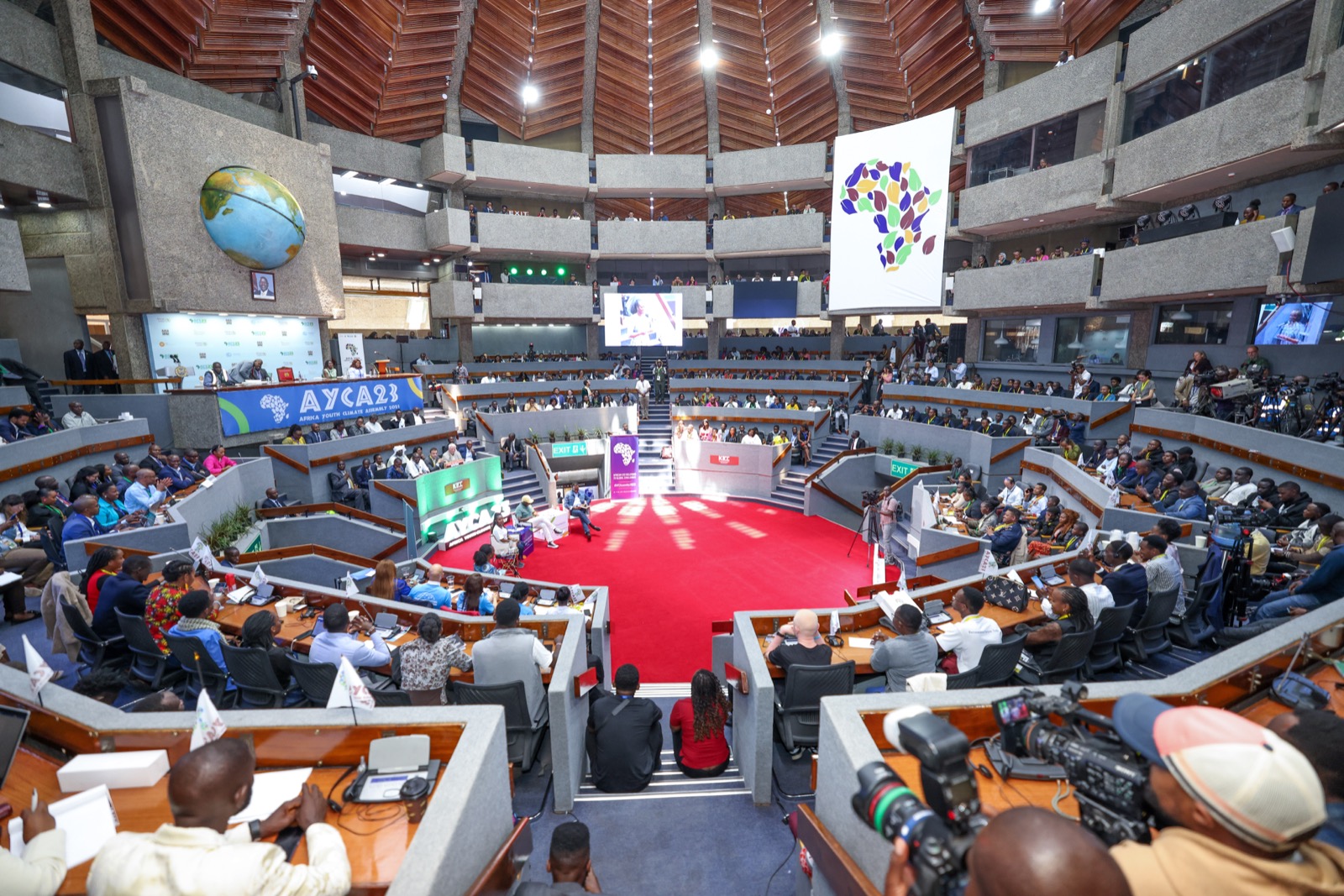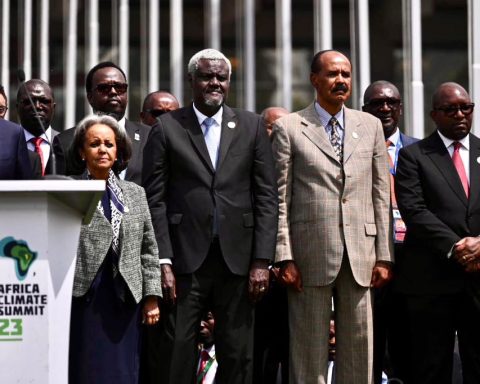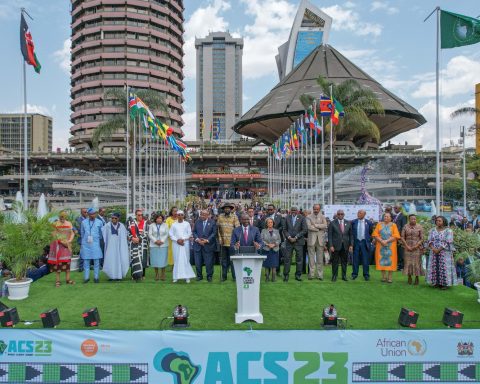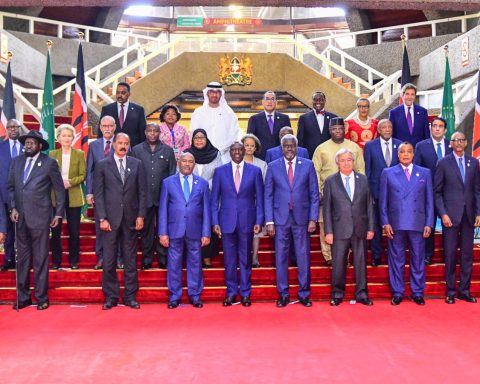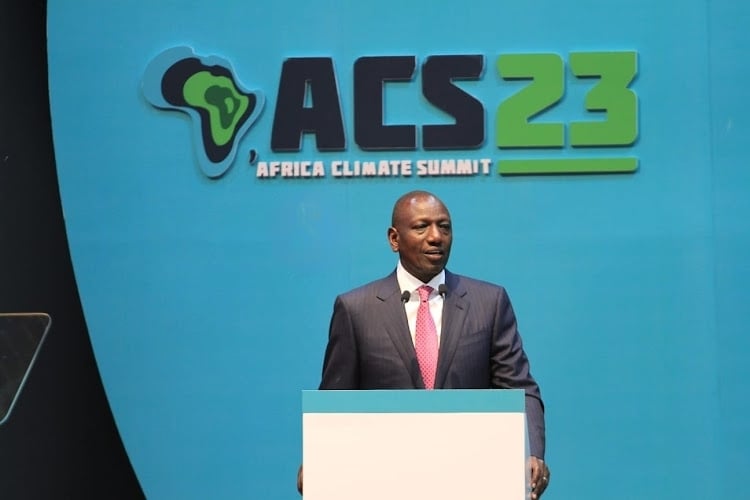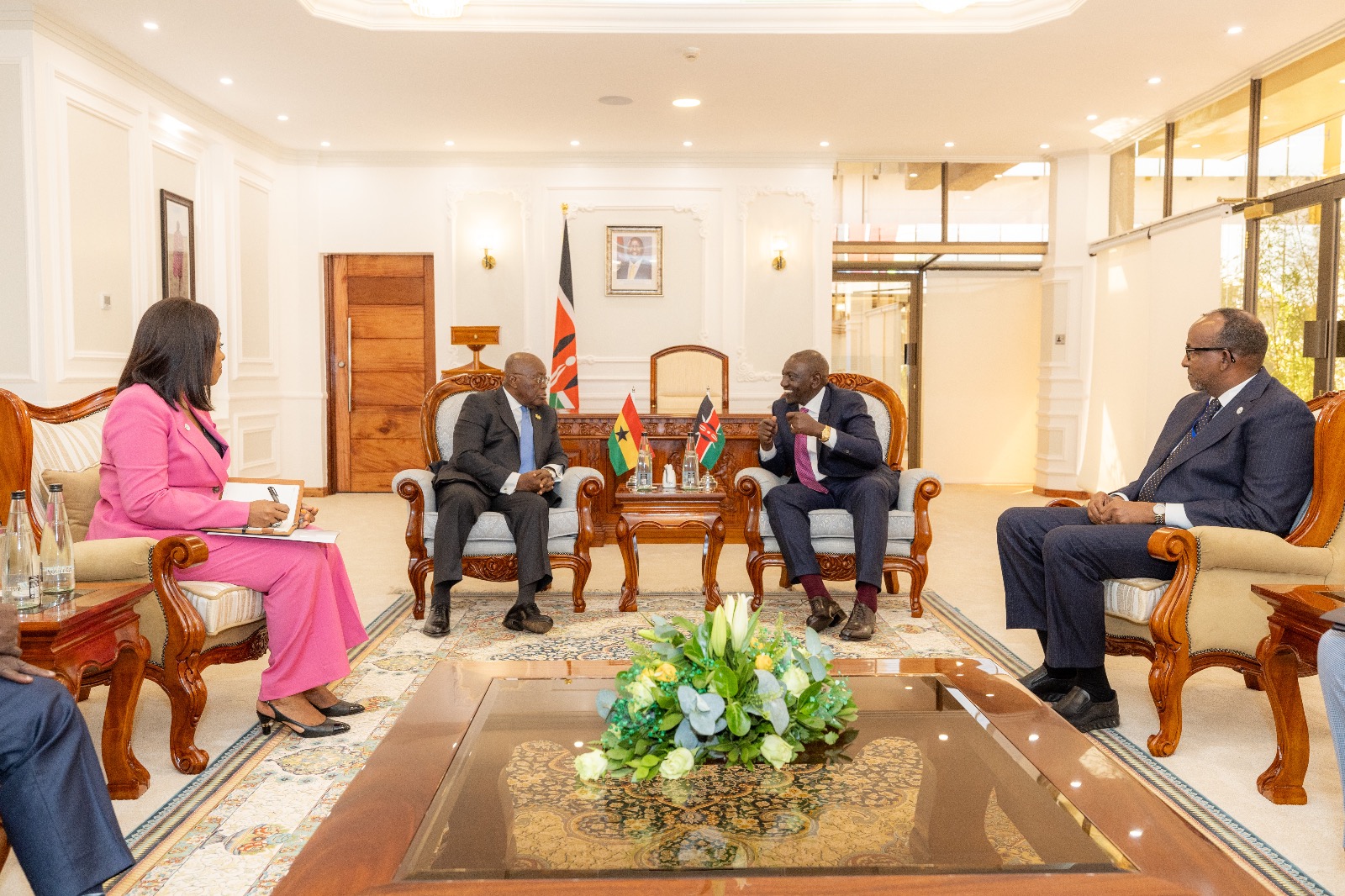The Africa Youth Climate Assembly (AYCA) has issued a landmark declaration outlining its vision and ambition to address climate change and its effects on the continent.
The Nairobi Declaration made at the ongoing Africa Climate Summit lays out a comprehensive plan for engaging African youth in climate governance and shaping a sustainable future.
The declaration opens with a strong acknowledgment of the growing uncertainties and the severity of climate change’s impact on the world. It emphasizes that young individuals will inherit the planet and emphasizes Africa’s demographic advantage, with 70% of sub-Saharan Africa’s population under 30.
The declaration recalls Africa’s potential to lead in sustainable growth and the need to empower the youth population to address climate change.
The document references previous climate-related agreements, such as the Paris Summit for a New Global Financial Pact, highlighting the challenges posed by debt-distressed countries with predominantly young populations.
It reaffirms commitments to youth engagement, as outlined in the Organization of African Unity (OAU) Agenda 2063, which envisions Africa as a global powerhouse with youth at its core.
Key Resolutions and Recommendations
The Nairobi Declaration presents several resolutions and recommendations, underscoring the commitment to meaningful youth engagement in climate governance:
- Establishment of AYCA: AYCA is recognized as the principal forum for enhancing youth coordination in climate governance, both within and beyond the African Union Heads of State and Government Africa Climate Summit (ACS).
- Incorporation into AU Structures: The Youth Division of the African Union Commission (AUC) and the Department of Sustainable Environment and Blue Economy are called upon to integrate AYCA into their programs and structures.
- Global Green Bank: The declaration calls for the acceleration of the AU Heads of State and Governments’ ambition to establish a Global Green Bank, ensuring equitable representation and engagement of African youth in its operations.
- Green Fund for Youth Entrepreneurs: A green fund is recommended to support youth entrepreneurs in Africa, focusing on adaptation and green job creation while scaling up programs that support youth-led enterprises.
- United Nations Youth Office: Lobbying efforts are encouraged to establish a United Nations Youth Office domiciled in Africa, recognizing the majority of the world’s youth reside on the continent.
- Youth Participation in Decision-Making: The declaration emphasizes institutionalizing youth participation in all climate-related decision-making processes at continental forums and institutions.
- Youth-Led Research and Innovation: Investment in youth-led research, innovation, and data gathering initiatives to identify local climate challenges and solutions is recommended.
- Capacity Building: Capacity building for youth in climate change mitigation efforts, including knowledge, skills, and funding support for green growth programs, is highlighted.
- Youth-Centric Adaptation and Resilience: Specific adaptation and resilience efforts for youth, focusing on agriculture, climate education, job creation, and empowerment, are urged.
- Protection of Climate Migrants: Policy and legal frameworks to protect and empower climate migrants, particularly youth, are recommended.

